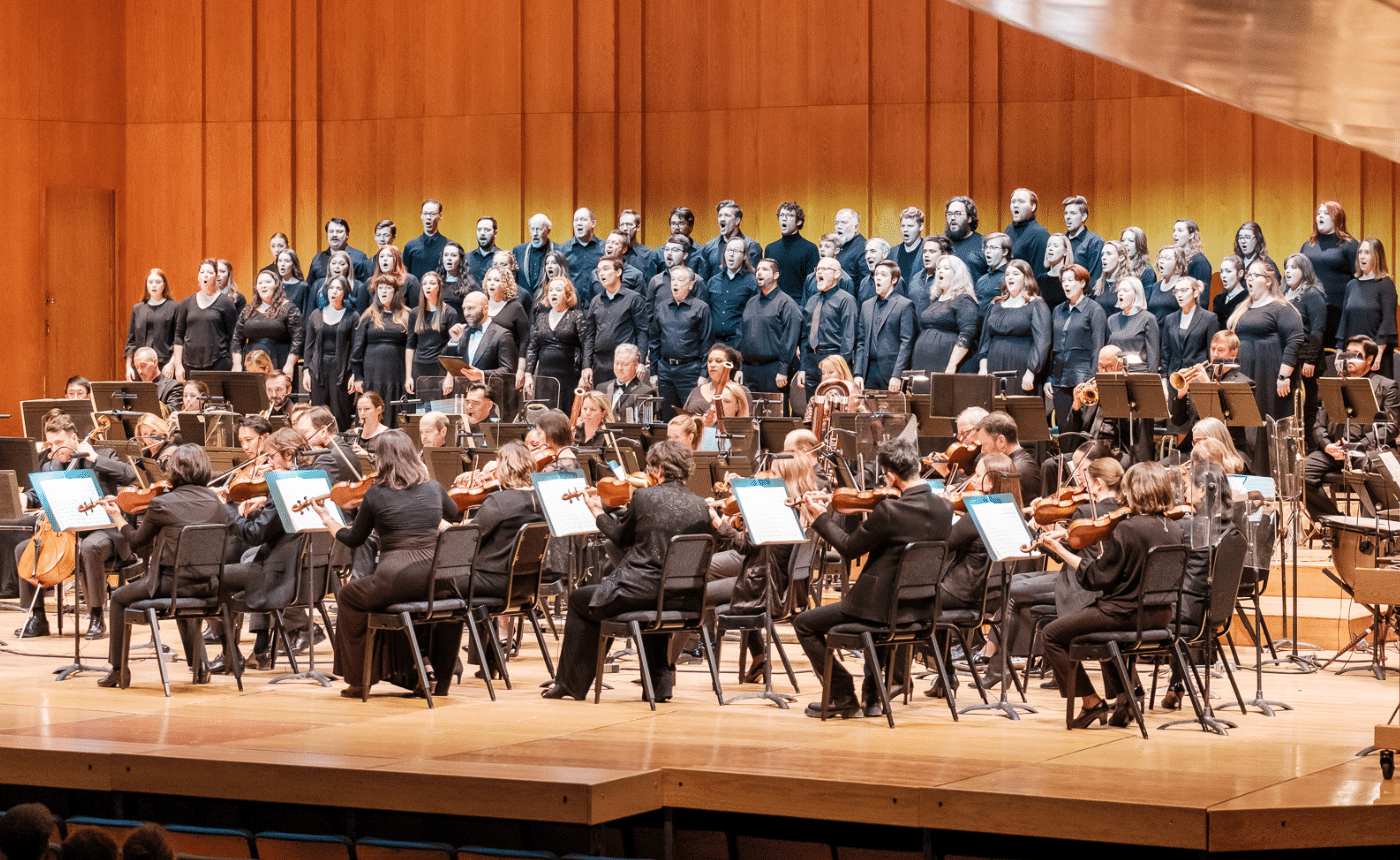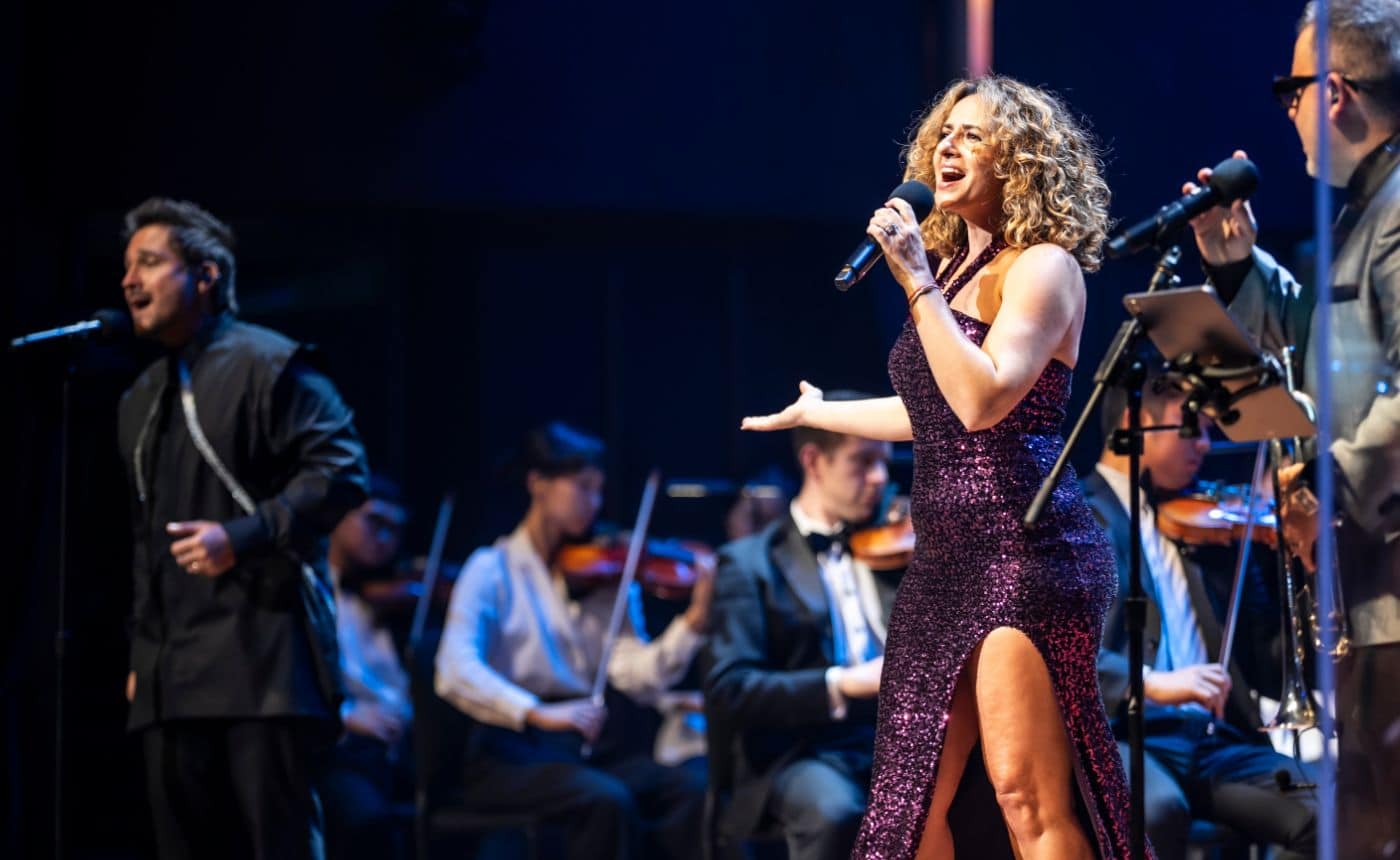Concert etiquette 101
by Robert Bedont
When friends who aren’t used to live classical music come with me to concerts, they often ask if they need to behave in a particular way. I usually tell them to simply show up and listen to some great music. While it’s true that an orchestra concert doesn’t have a dress code or secret password, there are some unspoken rules.
Audience etiquette has changed since the days of Haydn, Mozart, and Beethoven. In this day and age, classical music performances have an expected reverence when entering the performance hall. On the other hand, Mozart himself would have expected food, drink, gossip, and a rowdy 18th-century crowd!
Somewhere between then and now with Wagner and Mahler insisting on attentive listening and the background silence of 20th-century recording studios, audience noise has come to be viewed as intrusive to the performers and patrons alike. But, how much should we really care about coughs, applause between movements, and mobile phones?
I’m the last person to advocate stuffiness in the concert hall. Grim looks and furrowed brows alienate those who are not familiar with the art form. While unnecessary noise or general disrespect for other concert-goers’ experiences is discouraged, our goal is to invite new concertgoers into the fold, not scare them away!

For those who are new to the concert hall, here are some of those unspoken rules—some insider tips to help you feel more at home at a concert:
WHEN DO I CLAP?
Clapping is encouraged! Just not all the time or while the musicians are playing.
It is customary in the modern orchestra concert experience to hold your applause until the very end of the piece. Many of the works you hear have multiple sections called movements (each movement is listed in your program.) Not sure when the end of the piece is? Your best bet is to watch the conductor. They will let you know when the piece is over, so wait until they put their arms down and turn to face the audience. If their hands remain in front of them, they are waiting for the orchestra to be ready to continue the piece. If you’re still in doubt, you can always wait until the crowd begins to applaud.
But this isn’t a hard and fast rule! If you happen to be inspired by a particular movement and spontaneously break into clapping, it’s ok! Trust us—there are many more patrons in the hall with you that feel the same way. On top of that, the musicians love knowing that they moved you to applause!
WHAT SHOULD I WEAR?
As an audience member you can wear whatever is comfortable for you. Some people might feel comfortable in jeans, but others might feel more comfortable in an evening gown or tux. A good guide might be your personal dress code for dinner with friends. But you will probably see other concert-goers in everything from fancy dresses to a T-shirt and cowboy boots, so you can feel comfortable wearing anything in this range.
Just got off work and don’t have time to change? Come as you are whether that be business casual, scrubs, or a suit. Are you coming to a film in concert? Feel free to dress up as your favorite character from the movie. Want to show off your favorite formal dress on opening night? Wear it, all your fancy jewelry, and don’t forget your opera glasses.
WHAT IF I DON’T KNOW A LOT ABOUT THE MUSIC?
We have you covered. Take advantage of any pre-concert activities. Most major symphonies will hold lectures before each performance. The presenter will be an insider, who has information that will help you enjoy the performance even more. Forty-five minutes prior to each Utah Symphony Masterworks concert, VP of Symphony Artistic Planning Toby Tolokan hosts these presentations in the First Tier Room and is sometimes joined by guest artists or conductors. Topics range from the history of the composer or piece of music, to interesting anecdotes from the current or past performances of the pieces being played, and even information about the world-class guest soloist.
Sometimes if you come early, you might get treated to a special experience. Some of our concerts have food trucks outside of the venue, aspiring young musicians playing in the lobby beforehand, the chance to handle and play real instruments, special concessions like churros, or even community artists sharing their talents on the plaza of Abravanel Hall.
OKAY, BUT WHAT SHOULD I NOT DO?
We love it when our audience feels comfortable in the concert hall, but there are some things you should keep in mind in order to respect your fellow concert goers:
Eating, talking, and other careless noises are distracting to the musicians and to the audience. Major concert halls are designed to have wonderful acoustics—it’s why it feels like the music is all around you. But, concert hall acoustics can’t discriminate between orchestral sounds and the sound of a candy wrapper or dropped program. A good tip is to unwrap any cough drops, turn off your phone, and put your purse and coat under your chair before the concert starts.
Please silence your cell phones, alarms, and other audible electronic devices before the concert begins. But, feel free to check in before the concert or tweet a photo! Arts organizations love engaging with audience members on social media! Just remember to not disturb your seat neighbors during the concert. Phone screens give off more light than you’d think in a darkened hall!
With all of this being said, perhaps there’s only really one rule: respect the people around you, relax, and enjoy some incredible music.
WATCH LIVE SEASON ANNOUNCEMENT 3/23 at 12 PM
















